Research facilities
The 300-metre-long Delta flume where we can simulate waves of more than 4.5 metres high is world-famous. The same goes for the innovative GeoCentrifuge in which we reduce processes in the subsurface that in reality take years to hours, necessary to build a road or tunnel. Deltares' research facilities for water and soil research are unique in many ways. Have a look at the great diversity in innovative facilities at our disposal.
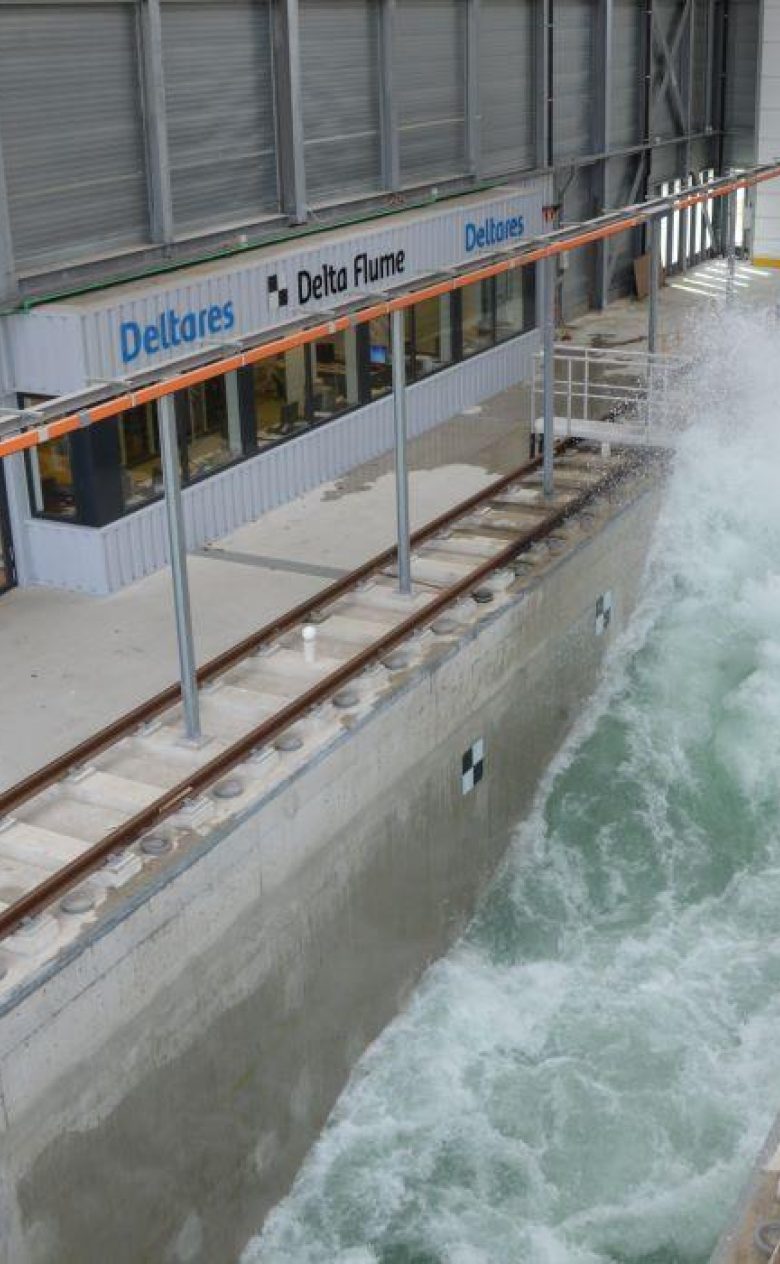
Wave and flow facilities
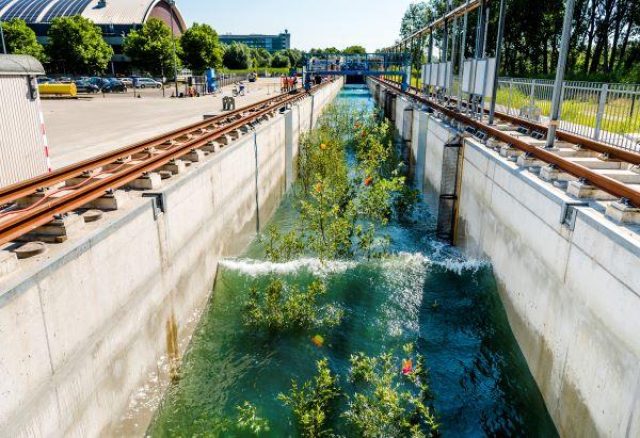
To adapt hydraulic structures to changing conditions along coasts or at ports or to build new ones for that purpose, it is important to test them before the build. What is the optimal design for the conditions in place? We have unique wave and flow facilities. Unique because of their scale and accuracy.
Geo facilities
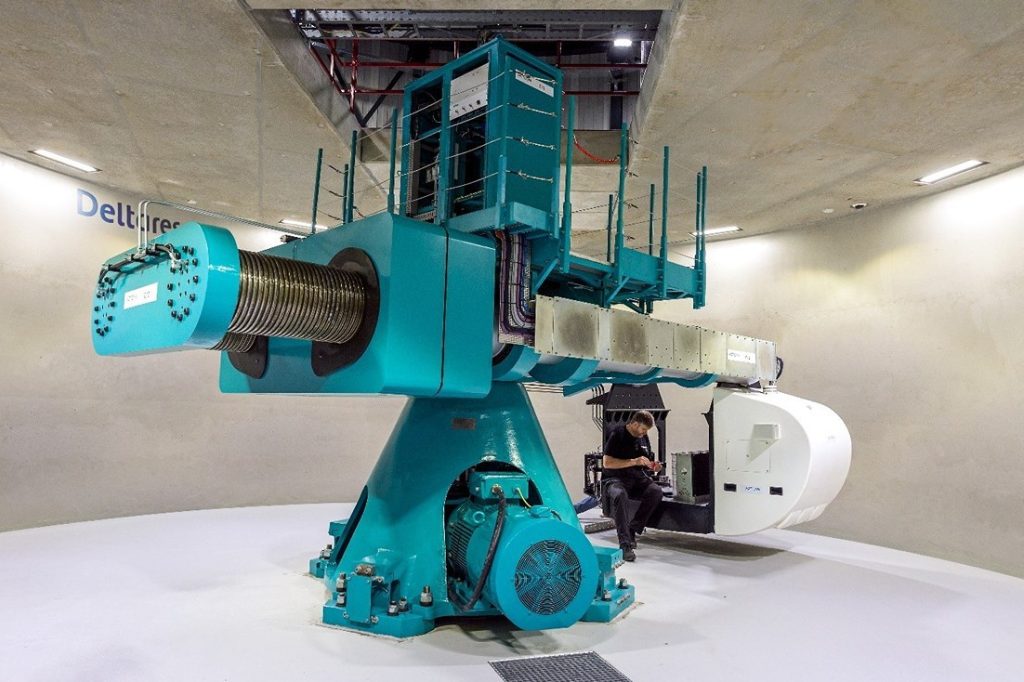
With our geo facilities, we perform research for issues related to the subsurface. We study the effects of human interference. For instance, if you want to build or improve a tunnel or a road. Simuations also enable us to study situations and effects that might occur in the future. It is expected that in the future subsoils will be wetter, warmer and drier. Anticipating on that situation are for instance the Dutch water and soil guiding policy and SDG11 sustainable cities and towns.
Data facilities
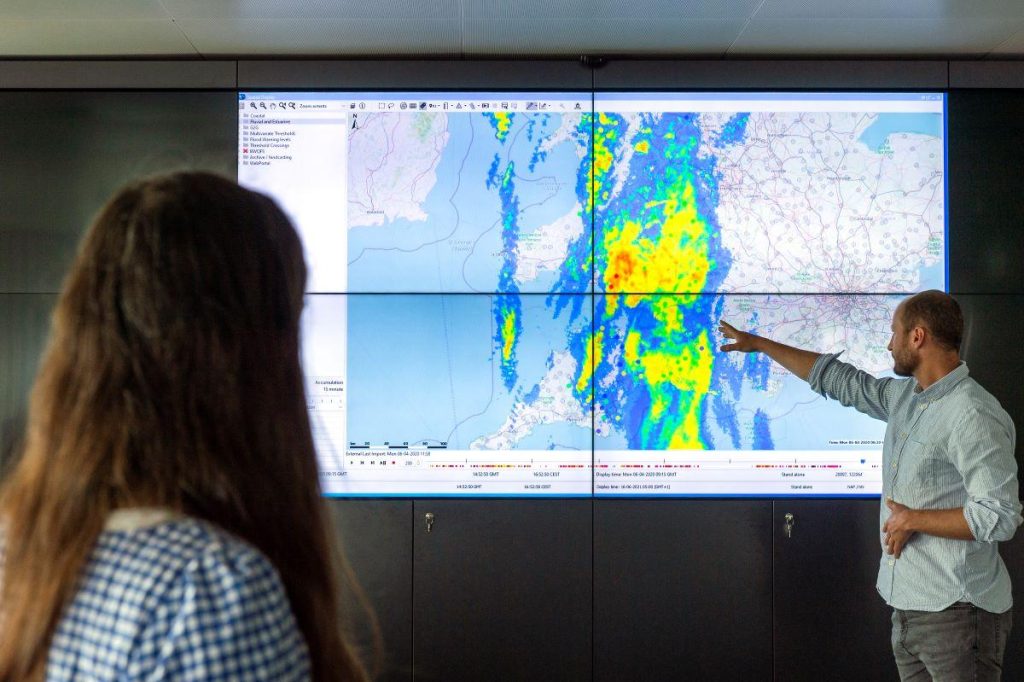
In our data facilities, we tackle complex water, subsurface and infrastructure challenges. We use machine learning and deep learning to develop tools and models that contribute to keeping delta regions around the world livable and safe.
Biological, chemical and physical research

The quality of water, soil and sediment is important for liveability. Here, for instance, we explore possible solutions for sufficient space for dredged material and the presence and effects of pollutants.
Our Deltalab
Instruments
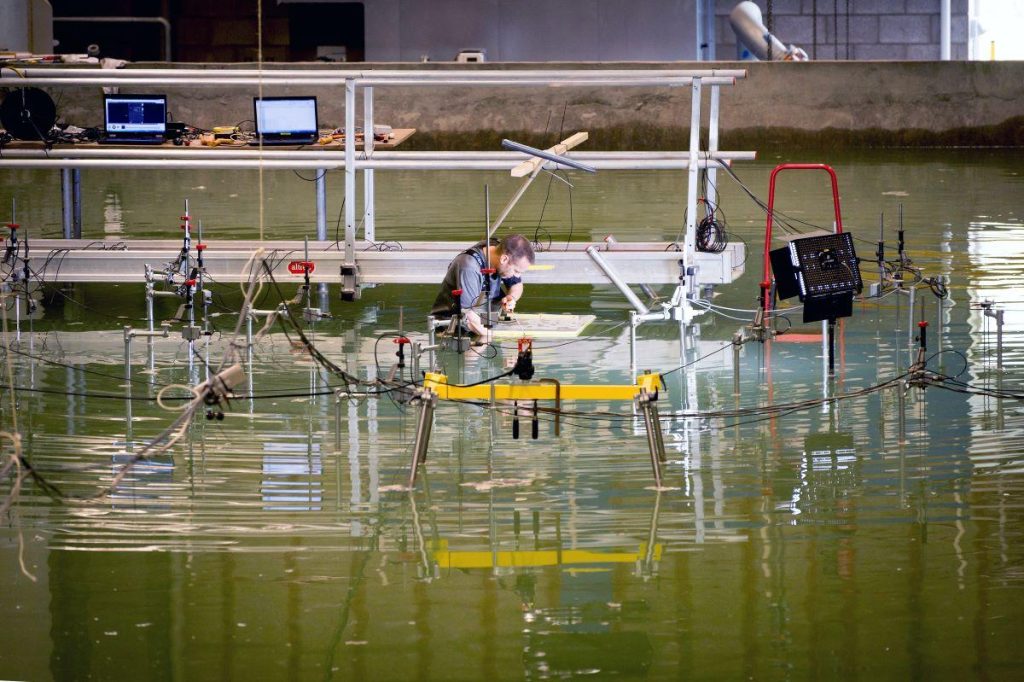
We develop standard and tailor-made laboratory instruments and advanced measuring techniques. These instruments and techniques enable for instance dredgers, port authorities, laboratories, universities and engineering firms to have accurate hydrodynamic measurements. We have a track-record of more than 70 years of knowledge and experience with precision mechanics. This enables us to continuously adapt to actual requirements.
Our instruments
Field research
Field research provides realistic data from practice and is sometimes necessary in addition to model predictions or laboratory tests. It helps to validate theoretical models and simulations, and to investigate the upscaling of innovations. Many processes in soil, water, and the subsurface are constantly changing. Think of currents, soil subsidence, salinisation or ecological changes. Field research makes it possible to monitor and understand these processes in reality.
We go into the field to test innovative measurement and monitoring techniques, collect data, validate models. and monitor processes. We also investigate whether we can scale up the application. This allows us to better assess risks in order to limit or, better still, prevent damage. Much of our field research is carried out in trial fields where we test innovations together with partners.
